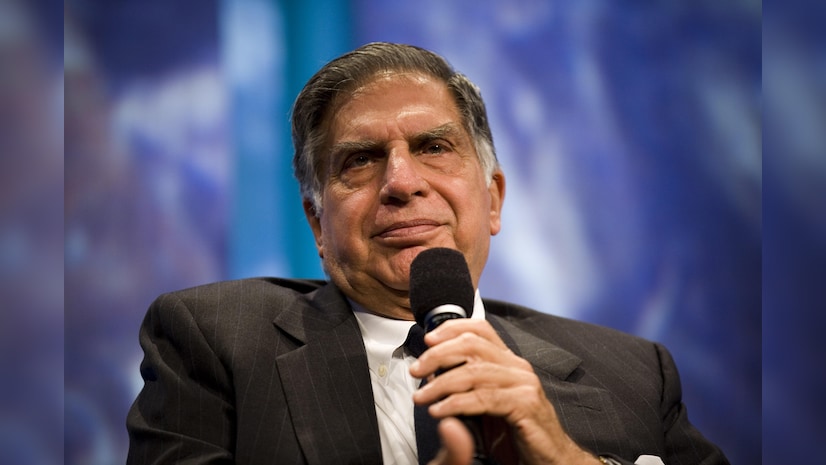
An advocate of both services and manufacturing. Photographer: Brian Harkin/Getty Images
In India, the name Tata is ubiquitous. People see it on the packet of tea they wake up with in the morning, on the buses that take them to work and in the hotels where they go for a drink after work. No other name is more representative of the potential and failures of the country’s private sector – and so this week all Indians will have felt the passing of the group’s patriarch Ratan Tata.
In his ambition and through his mistakes, Tata has seized the potential of a global, modern India. The century-old conglomerate he led has grown with his country, from the first revival of an industrial economy in the subcontinent with its steel plant in Jamshedpur, through the bleak years of socialism and the burst of optimism after liberalization.
Ratan Tata took over in 1990, a year before India started to deregulate and open up. Under him, a group that made steel, trucks and chemicals quickly diversified into small cars and information technology.
This shift illustrated India’s move from a state-driven, capital-intensive growth model to one based on consumer demand and service exports. Today Tata Consultancy Services Ltd. responsible for most of the group’s value.
Unfortunately, deindustrialization has not worked out so well in the rest of the country. A service-led economy cannot create enough jobs and seems unable to guarantee economic security.
India’s current government is desperately trying to turn back the clock with a sweeping industrial policy. But transforming an expensive, relatively uncompetitive manufacturing sector has proven to be a difficult task.
Perhaps that’s because Prime Minister Narendra Modi’s efforts have focused on tariffs, subsidies and protections for domestic manufacturers rather than improving productivity. The government wants companies to stay home and indigenize their entire supply chain.
Tata Sons Ltd CEO N Chandrashekharan pleasantly promised Modi in 2022 at the opening of a new aircraft factory that “Tata Group will now be able to take aluminum blocks at one end of the value stream and turn it into an Airbus C295 aircraft for the future. The Indian Air Force on the other hand.” The Tatas are also building three semiconductor manufacturing plants and a chip testing and assembly complex, in response to a government push.
Ratan Tata’s own instincts seemed to have pushed him in a different direction. While he has never given up on manufacturing, he has always believed that Indian companies should be global.
He used TCS’s winnings to make big bets on both bets that did not always pay off. In 2008, Tata Motors Ltd purchased Jaguar Land Rover. That deal can be considered a success, as last year the company reported its highest revenue since 2015.
Other decisions don’t look so good in retrospect. In 2007, Tata bought Corus Group Ltd, which made steel at the factories previously owned by the Dutch and British national producers, Koninklijke Hoogovens and British Steel respectively. Tata probably paid too much and lost billions on that bet; The last blast furnace of the former British Steel has just closed. The week that Ratan Tata has passed is also the first week in centuries that no steel is being cast in Britain.
Nevertheless, India trusted its judgment even when it came to political issues: when Tata Motors Ltd chose Modi-led Gujarat as the site for a new car plant in 2008, it was seen as a sign that the private sector was particularly confident in then controversial Modi. other prime ministers. The country followed Tata’s example a few years later.
Why not also support his commercial instincts? India’s ambitions must be global, not local. Its companies must produce in and for the world and not only focus on the domestic market. Whatever his faults, Ratan Tata always compared himself and his group’s products with the best in the world. The rest of India should do the same.
I grew up in Jamshedpur, the beautiful company town that the Tatas built around their massive steel mill. Ratan Tata was already a larger-than-life figure back then. Jamshedpur, with its world-class facilities, its orderliness and its productivity, seemed a harbinger of what India could become. The country may not yet have fulfilled that promise, but like Ratan Tata, it should not stop believing.
First publication: October 10, 2024 | 9:38 am IST
